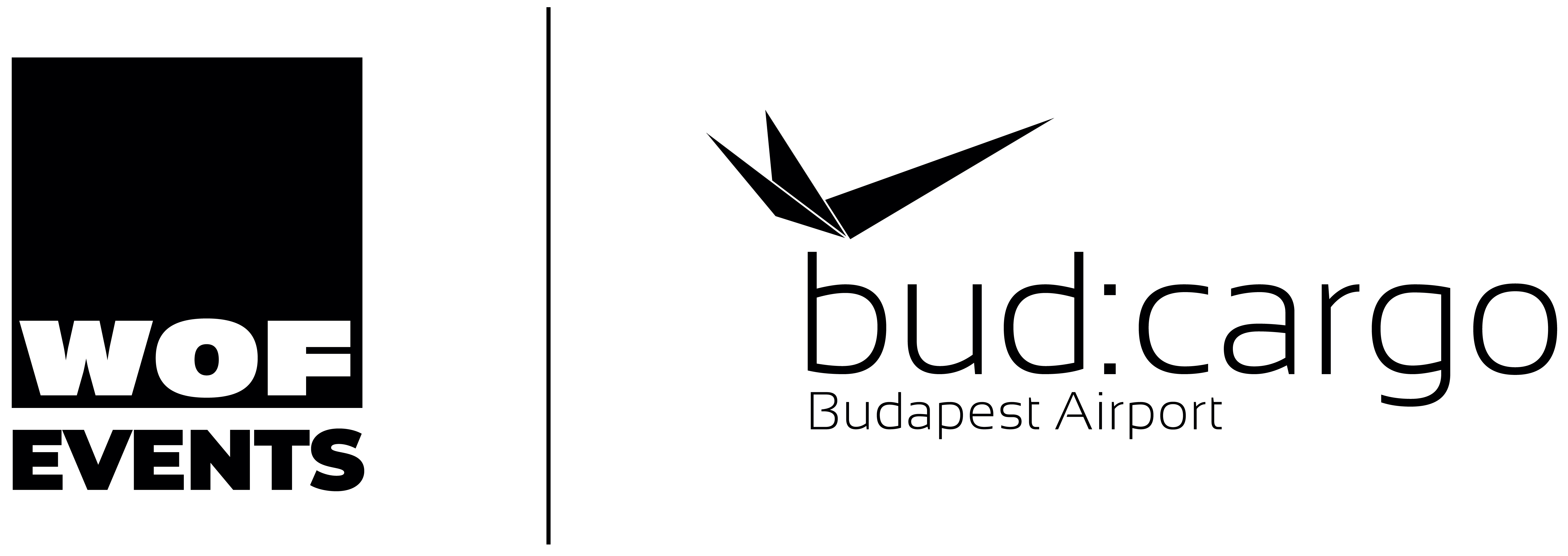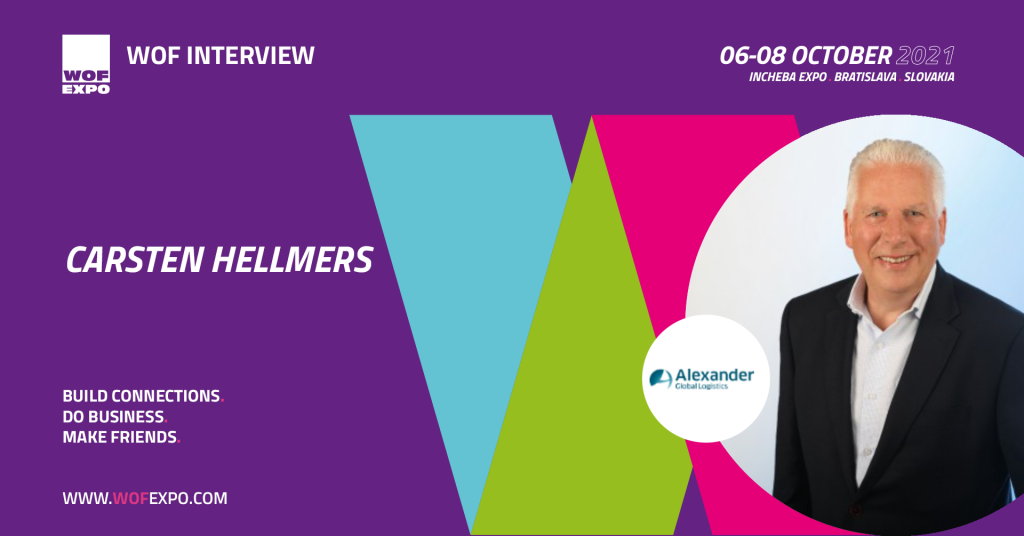INTERVIEW WITH Carsten Hellmers
| Mr. Carsten Hellmers is the CEO of AGL (Alexander Global Logistics GmbH), an internationally known forwarder offering worldwide transport solutions. He started in the shipping industry as a broker/agent, operating special product vessels in the European Geography. Throughout his entire professional career in the transport industry, he especially focused on Forest Product Logistics, over 30 years. He left the shipping industry in 1998 and continued his career as Director and Branch Manager in Bremen of an international logistics company. Mr. Hellmers founded Alexander Global Logistics GmbH (AGL) in 2006. The business started with only five employees, and today, AGL employs 80 staff with the head office in Bremen, Germany and Branch offices in the USA, Chile, Brasil, Poland, UK, Belgium and China. AGL became a major logistic provider being active in supply chain management of Forest Products as well as Project Logistics besides normal General Cargo handlings. |
| 1. Remarkable technology trends have intensified within months for what was previously part of a several-year plan. What innovations have you successfully implemented in your business? Do you have an innovation strategy? In terms of operations, 80% of the processes at Alexander Global Logistics are now digital. We understand that our decisions and work ethics have a high impact on the environment. That is why we at AGL are constantly working on our goal of becoming completely paperless and optimising our processes step-by-step. Digitization should create added value for customers and employees. For us, that means understanding a unique customer needs with ever-increasing speed and precision through the commitment, energy, and imagination of their employees. Therefore, a sustainable value cannot be obtained for one group unless it is created for all of them. Besides, there must be a mindset change among employees as this is the only way to successfully implement a digitization strategy. At Alexander Global Logistics, we are proud to say that through trust and clear communication creating new innovative strategies has become part of our day-to-day. 2. It is necessary to invest and adopt digital and integrated solutions to deliver resilience in the global supply chain by optimised adaptability and reliability. How do you cope with the rapid transformation brought by digitization? We don’t do digitization because it is a current trend. We do it because a company cannot thrive without innovation. To us, it is crucial to understand and analyse your own company before making this step. No company has won if it digitizes unstable processes quickly due to the rapid change brought about by this new transformation. Of course, we monitor new trends and competitors. However, each company and its processes must be considered individually. Not one solution fits all. Also, having trustworthy IT advisors is a key factor. AGL has in-house IT consultants that we know support us on our path to achieving our goal of becoming even more digitised. 3. The freight forwarding business generates much more paperwork than others. Millions of tons of freight travel every day, causing documentation at every step of logistics, imports, exports, customs requirements and more. The challenge is to reduce the paperwork and go paperless. Simultaneously, creating documentation electronically become increasingly difficult and expensive. How do you remain competitive and respond to the growing issues of document handling and the management of file storage? By doing a good job! Alexander Global Logistics is constantly changing in terms of digitalization – also concerning the paperless process. We have created our concept to benefit our customers and employees. Our latest goal was to digitalise our bookkeeping and accounting. And we are proud to say that as of last month, we have reached this milestone. All invoices and salary statements are now processed digitally. Not only are we saving an enormous amount of paper and postage costs, but it also makes it more accessible for our employees. 4. What is the impact of Covid-19 on the freight forwarding companies, and how is the readjustment for further development in their daily business? At the start of last year, nobody foresaw a global virus outbreak. During the early stages of the pandemic, the business-to-business logistics market came almost to a standstill. In the logistics sector, the decline in demand amounted to 35-40% in export and import. Luckily, one of the main raw materials for hygiene products such as tissue and face masks, pulp continues to move. Consequently, pulp logistics, one of our largest business areas, is still in high demand, but there is a creeping standstill in the container sector, where we are also active. Each of our departments were impacted differently: |
- Land freight: Unfortunately, the market is very unpredictable, and prices keep fluctuating. During the first wave, we were lucky enough to stay open and still offer our services to our customers. That was due to our long-term trust-based relationships and clear communication with our clients, the drivers, and the warehouses. Unfortunately, things took a turn in the second wave due to further lockdown restrictions, as trucks formed 37-mile-long lines on the A4 highway after Poland closed its border with Germany. The impacts of Brexit are also slowly starting to show, and there is a fear that a lot of companies won’t survive this pandemic, which could lead to a rise in prices. It would be a lose-lose situation for everyone. Nonetheless, there is still hope as the last couple of weeks have shown some normalisation in the market.
- Sea
freight: As the pandemic spread worldwide in the spring of last
year, global volume flows were disrupted. The empty container supply
deteriorated increasingly. Little by little, the ships that had been docked
were put back into service. However, the available capacities were not yet
sufficient.
Due to the global shortage, the shipping companies are concentrating on the most profitable services with the empty containers available. Our online platforms provide a better overview of the current situation, giving us an advantage when it comes to sudden changes or disruptions.
- Air freight: Although many airports around the world are closed to passenger flights, most are still open to cargo, which can be essential to the COVID-19 response. The airline industry is already reallocating fleet to exclusively serve air cargo demand.
Going forward
For the most part, governments have responded to the crisis by designating ports, shipping, and trucking services as essential, making them exempt from lockdown measures. Closer collaboration between governments and third-party logistics companies has also been necessary to address supply chain bottlenecks and facilitate clearances.
Fellow Bremen based freight forwarders are hoping for an increase in demand shortly, although further developments are difficult to foresee with the Corona Pandemic continuously impacting global trades and logistics.
5. What is your opinion about positioning WOF-EXPO in the Central and Eastern Europe region? My opinion of the WOF-EXPO positioning itself in the Central and Eastern Europe region is that this is the dominating region of Europe with fast growth rates in all areas of production and logistics. As the European logistics market is changing rapidly and as the supply chains are being restructured, economies are expanding, and e-commerce is accelerating. The logistics corridors and metropolitan areas in Benelux and Western Germany best exemplify these characteristics. Central and Eastern Europe have a high consumer density and well-developed transport networks, so it is no surprise that this is an ideal place to position the WOF-EXPO.
 | Alexander Global Logistics is an internationally known forwarder offering worldwide handling, storage, shipping, air, road and rail transport solutions within the framework of import, export and project forwarding. Alexander Global Logistics was established on the 6th of June 2006 with five employees. Today, AGL is known worldwide, and their young and dynamic team consists of more than 60 people who work with motivation and dedication to deliver the best service to customers worldwide.
Specialized in the transport of forest products like pulp, paper and wood/lumber, project shipments like submarines and anything else that won’t fit into a container. AGL coordinates, handle and transport general cargo to any destination of its own choice. With creative and innovative solutions, AGL meets the challenges of global logistics. Being an independent logistic service provider headquartered in Bremen, AGL is well known for superior service effective technologies and our global network.
alexander-logistics.com |

